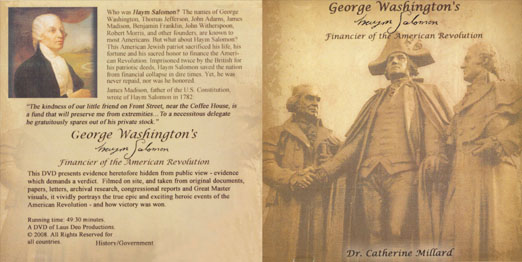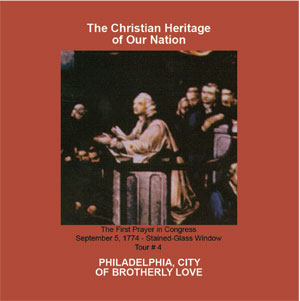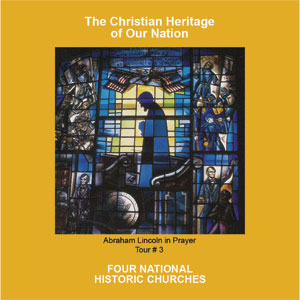Adullam Films’ 2010 production states that “The American Revolution begins with Thomas Paine. The pen of Paine brought about the American Revolution. What kind of spirit was it? The founders based their thinking on Thomas Paine. Paine attacked the Bible, openly contending against the gospel.” Is this statement based upon fact?
Thomas Paine, a Quaker by affiliation, was Secretary to the Committee of Foreign Affairs of the Continental Congress from April 17, 1777 to January, 1779, leaving for France in 1781. Paine’s “Common Sense,” published in January, 1776, made him the best known and most influential writer in America at the time. To “Common Sense” is ascribed the turning point in favor of independence. However, “Common Sense” is a Scriptural document, Paine’s powerful arguments against monarchial rule and tyranny deriving their source from the Bible, as follows:
“COMMON SENSE
Of Monarchy and Hereditary Succession
Government by kings was first introduced into the world by the heathens, from whom the children of Israel copied the custom. It was the most prosperous invention the Devil ever set on foot for the promotion of idolatry. Heathens paid divine honours to their deceased kings and the Christian World hath improved on the plan by doing the same to their living ones. How impious is the title of sacred Majesty applied to a worm, who in the midst of his splendor is crumbling into dust!
As the exalting one man so greatly above the rest cannot be justified on the equal rights of nature, so neither can it be defended on the authority of Scripture; for the will of the Almighty as declared by Gideon, and the prophet Samuel, expressly disapproves of government by Kings. All anti-monarchical parts of Scripture, have been very smoothly glossed over in monarchial governments, but they undoubtedly merit the attention of countries which have their governments yet to form. Render unto Caesar the things which are Caesar’s,* is the Scripture doctrine of courts, yet it is no support of monarchical government, for the Jews at that time were without a king, and in a state of vassalage to the Romans.
Monarchy is ranked in Scripture as one of the sins of the Jews, for which a curse in reserve is denounced against them. The history of that transaction is worth attending to. The children of Israel being oppressed by the Midianites, Gideon marched against them with a small army, and victory thro’ the Divine interposition decided in his favour. The Jews, elated with success, and attributing it to the generalship of Gideon, proposed making him a king, saying, Rule thou over us, thou and they son, and thy son’s son. Here was temptation in its fullest extent; not a kingdom only, but an hereditary one; but Gideon in the piety of his soul replied, I will not rule over you, neither shall my son rule over you. THE LORD SHALL RULE OVER YOU.** Words need not be more explicit; Gideon doth not decline the honour, but denieth their right to give it; neither doth he compliment them with invented declarations of his thanks, but in the positive stile of a prophet, charges them with disaffection to their proper Sovereign, the King of Heaven.
About one hundred and thirty years after this, they fell again into the same error. The hankering which the Jews had for the idolatrous customs of the heathens, is something exceedingly unaccountable; but so it was, that laying hold of the misconduct of Samuel’s two sons, who were entrusted with some secular concerns, they came in an abrupt and clamorous manner to Samuel, saying, “Behold thou art old, and thy sons walk not in thy ways, now make us a king to judge us like all the other nations.” And here we cannot but observe that their motives were bad, viz. that they might be like unto other nations, i.e. the Heathens, whereas their true glory lay in being as much unlike them as possible. But the thing displeased Samuel when they said, give us a King to judge us; and Samuel prayed unto the Lord, and the Lord said unto Samuel, hearken unto the voice of the people in all that they say unto thee, for they have not rejected thee, but they have rejected me, THAT I SHOULD NOT REIGN OVER THEM. According to all the works which they have done since the day that I brought them up out of Egypt even unto this day, wherewith they have forsaken Me, and served other gods: so do they also unto thee. Now therefore hearken unto their voice, howbeit, protest solemnly unto them and show them the manner of the King that shall reign over them,*** i.e., not of any particular King, but the general manner of the Kings of the earth whom Israel was so eagerly copying after. And notwithstanding the great distance of time and difference of manners, the character is still in fashion…And a man hath good reason to believe that there is as much of kingcraft as priestcraft in withholding the Scripture from the public in popish countries. For monarchy in every instance is the popery of government.
To the evil of monarchy we have added that of hereditary succession; and as the first is a degradation and lessening of ourselves, so the second, claimed as a matter of right, is an insult and imposition on posterity. For all men being originally equals, no one by birth could have a right to set up his own family in perpetual preference to all others for ever, and tho’ himself might deserve some decent degree of honours of his contemporaries, yet his descendants might be far too unworthy to inherit them. One of the strongest natural proofs of the folly of hereditary right in Kings, is that nature disapproves it, otherwise she would not so frequently turn it into ridicule, by giving mankind an Ass for a Lion…” 1
To learn more, click here. (Founders’ book)
___________________________
Bibliography:
*Matthew 22:21
**Judges 8:22, 23
***I Samuel 8:6, 7, 8, 9
1Paine, Thomas. Common Sense. Published in January, 1776. Library of Congress, Rare Book Collection.























